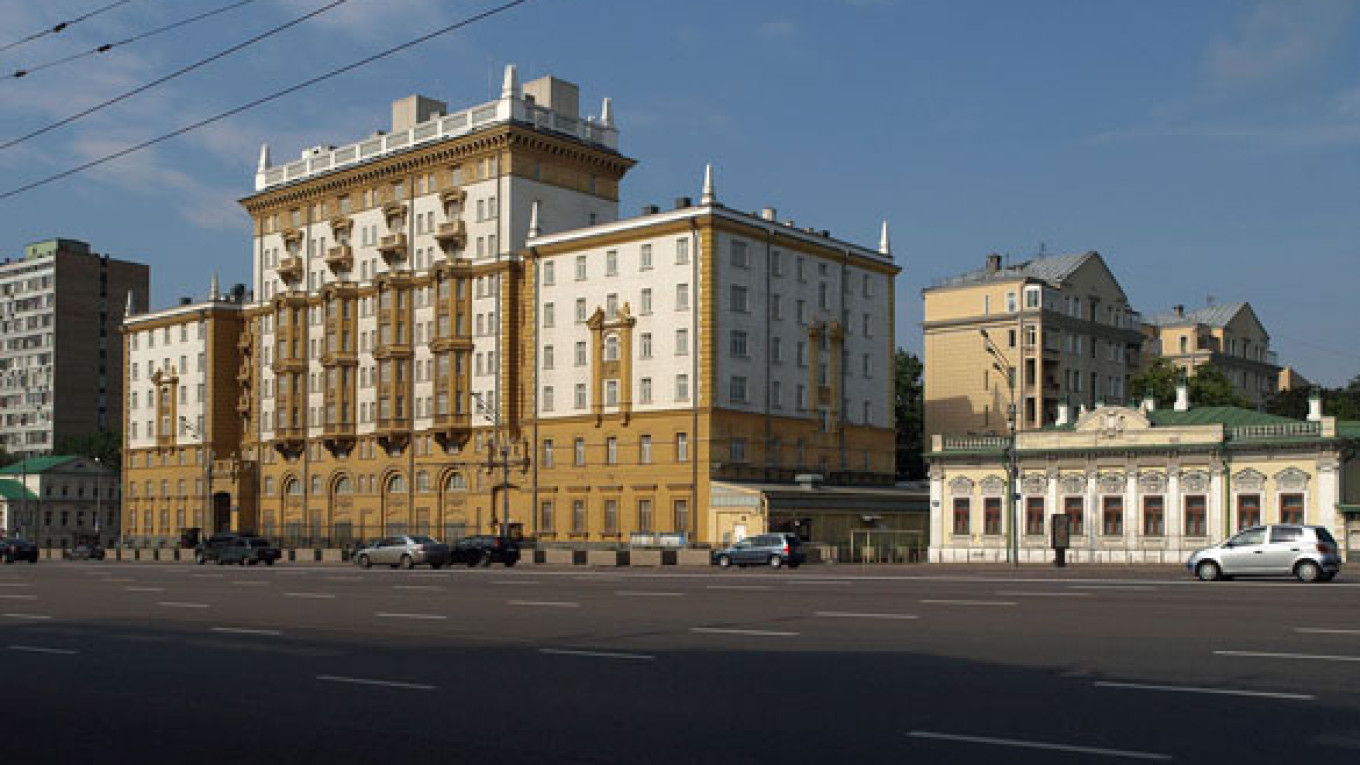The bureaucratic burden on Russian and American travelers is set to lighten next year after the State Duma voted Friday for a less onerous visa regime between the two countries.
The approval of the long-awaited visa simplification deal was hailed as a positive step, coming amid hot-tempered exchanges between the two countries over the conflict in Syria and the Magnitsky affair.
The deal will make three-year, multi-entry visas standard for business travelers and tourists, up from the current maximum visa of two years for Russians and one year for Americans. Waiting times for visas will be no more than 15 days.
The agreement could enter into force in late 2012 or early 2013, Leonid Kalashnikov, a Communist lawmaker and deputy chairman of the foreign relations committee, told The Moscow Times.
It is a very good step that will benefit tourists and business travelers alike, he said.
"This is a vast improvement in an area that has received constant complaints from American business," said Andrew Somers, president of the American Chamber of Commerce in Russia. "There have been a lot who didn't come because the process was complicated. I think that will change."
The agreement must now be approved by the Federation Council before it can be signed by President Vladimir Putin and published in Rossiiskaya Gazeta, the government newspaper. The agreement will come into force 30 days after a final diplomatic formality, an exchange of notes.
The U.S. Congress does not need to ratify the agreement.
"Following a positive vote in the Duma Friday, the embassy looks forward to final Russian government approval of the Russia-USA visa agreement in the near future," embassy press attach?? Joseph Kruzich said Sunday.
After weeks of angry rebukes between the United States and Russia over the conflict in Syria and an effort by U.S. lawmakers to sanction officials implicated in the death of whistle-blower Sergei Magnitsky, the visa deal is seen as a sign that the United States and Russia can work together on practical tasks.
This agreement demonstrates that business as usual on visa issues is continuing between Moscow and Washington despite disagreements in other areas, said Mikhail Troitsky, associate professor at the Moscow State Institute of International Relations.
However, he pointed out that the deal was limited in scope.
"It would be nice to only need to get a U.S. visa once every three years instead of two, but much depends on the size of the visa fees," Troitsky said in e-mailed comments. "The visa fee problem needs to be addressed if both countries seriously want to promote mutual tourism and business contacts."
Mikhail Delyagin, director of the Institute for the Problems of Globalization, said the deal would improve relations and mutual understanding between the two countries.
But he added that only 17 percent of Russians travel abroad and that few go to the United States, which is far away and expensive. And U.S. immigration officials inspire trepidation, he said.
One in 10 Russians applying for a U.S. visa is turned down, according to U.S. State Department statistics. That compares with a 19.4 percent rejection rate for Belarussians and 40 percent for Georgians.
Russia hopes this will be the first step toward visa-free travel between the two countries.
In March 2011, Vladimir Putin, then prime minister, proposed a visa-free regime to U.S. Vice President Joe Biden. Yury Yushakov, Putin's aide, repeated this offer in May, adding that Moscow was still waiting for an answer from the Americans.
But Troitsky said it would be naive to expect a visa-free regime between the two countries anytime soon.
"Among other obstacles, it would be difficult to convince members of the U.S. Congress that they should agree to a visa-waiver deal with a country so concerned with preserving its ability to annihilate the United States with nuclear weapons," he added, referring to Russian objections to a U.S. missile defense system in Europe.
Many hope that more face-to-face contact between Americans and Russians will dispel political tensions.
"The more folks travel between those two countries, especially businesspeople who are going to generate wealth in both economies, the better off the political situation will be in the long run," Somers said.
A Message from The Moscow Times:
Dear readers,
We are facing unprecedented challenges. Russia's Prosecutor General's Office has designated The Moscow Times as an "undesirable" organization, criminalizing our work and putting our staff at risk of prosecution. This follows our earlier unjust labeling as a "foreign agent."
These actions are direct attempts to silence independent journalism in Russia. The authorities claim our work "discredits the decisions of the Russian leadership." We see things differently: we strive to provide accurate, unbiased reporting on Russia.
We, the journalists of The Moscow Times, refuse to be silenced. But to continue our work, we need your help.
Your support, no matter how small, makes a world of difference. If you can, please support us monthly starting from just $2. It's quick to set up, and every contribution makes a significant impact.
By supporting The Moscow Times, you're defending open, independent journalism in the face of repression. Thank you for standing with us.
Remind me later.


